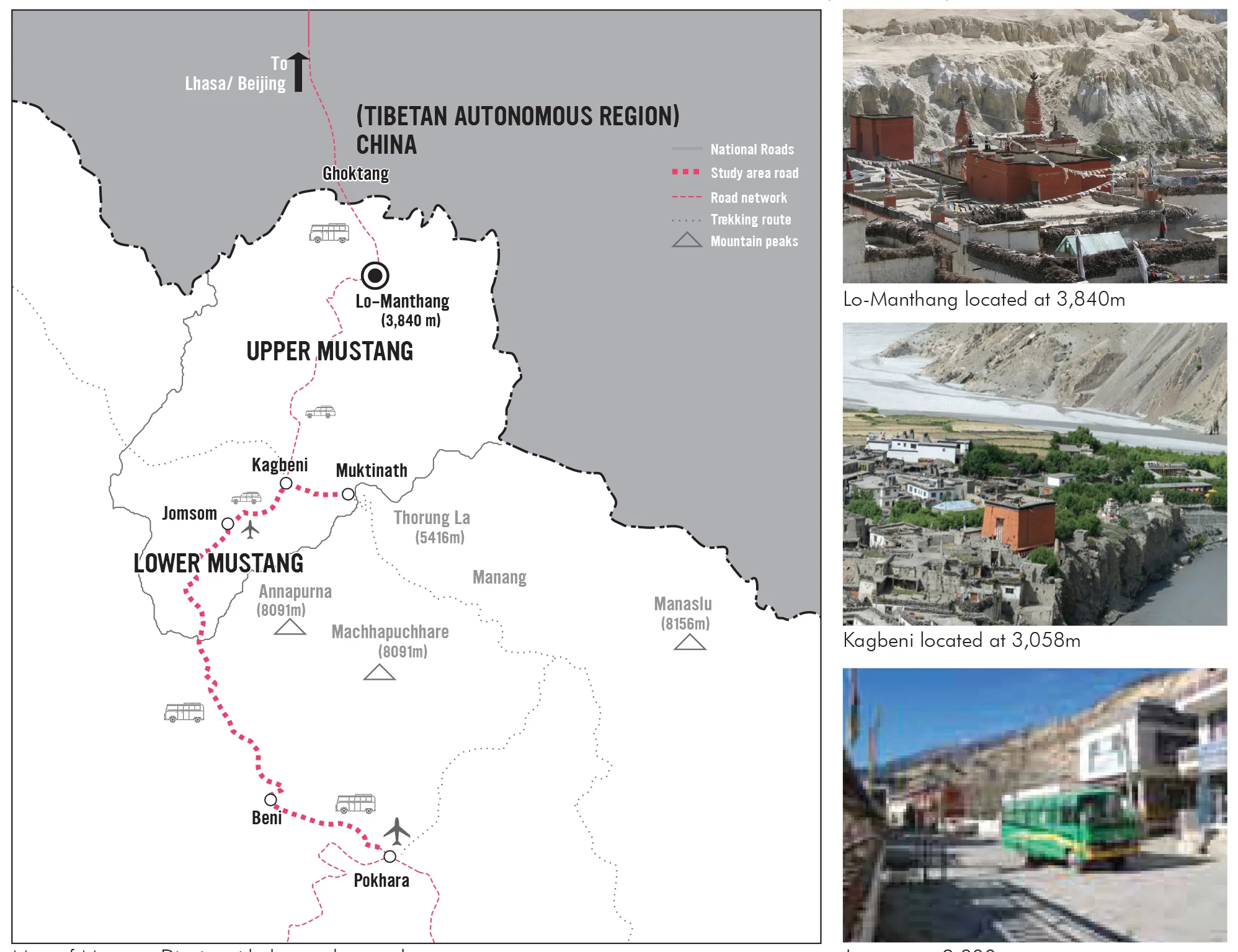
2012 / Rural urbanization study
The dated understanding of the mythic landscapes of Shangri- La, a peaceful remote geography with peaceful people undermines its current state. The advent of the road in Mustang, a territory highly restricted to trekkers and tourists who can only enter with expensive permits at specified times of the year, has brought forth apocalyptic visions of a region undergoing irreversible change. The romantic images that once dominated the writings of anthropologists, environmentalists, tourists, and preservationists has now changed to one of lament, apocalypse, and cultural demise.
In exploring the impact of a road infrastructure in this previously isolated seeming context, I begin to argue the assumed state of the rural as passive, static and isolated entity. As I traced the contours of Kagbeni, a village in Lower Mustang, the ambiguity and overlap of ‘tradition’ and ‘modernity’ became evident as changes incited by the road took subtler and nuanced forms. It was apparent that globalization was not a neat, facile process but rather heterogeneous and individuated.
The simplified understanding of Kagbeni as a peaceful Himalayan valley frozen in time prior to the introduction of the road undermines its evolutionary reality. Through a historical spatial analysis the changes in the settlement geography of Kagbeni can be perceived as it has evolved with the influence of a major North-South trade network (1550), Sanskritisation efforts (1774), a trekking route (1976) and Upper Mustang’s checkpoint (1996). Today, a dormant pilgrimage site has been activated by the confluence of two rivers making it a pilgrimage point for the growing Hindu pilgrims. Each era has reflected in its own spatial typology: clustered gated housing resulted directly from the need to become a check-point at a trade route in 1558 whereas in 1774 the nationalisation efforts reflected directly in the courtyard typology.
While the advent of road expansion did deliver significant sociospatial changes, it needed to be analysed with the optic of ‘process geography’, a term coined by Arjun Appadurai to describe spaces that have evolved in conjuction with local and global processes. In doing so, he highlights the agency of localities and people to negotiate global processes.
Location: Kagbeni, Nepal
More Info: Paving the Road to Shangri-La




